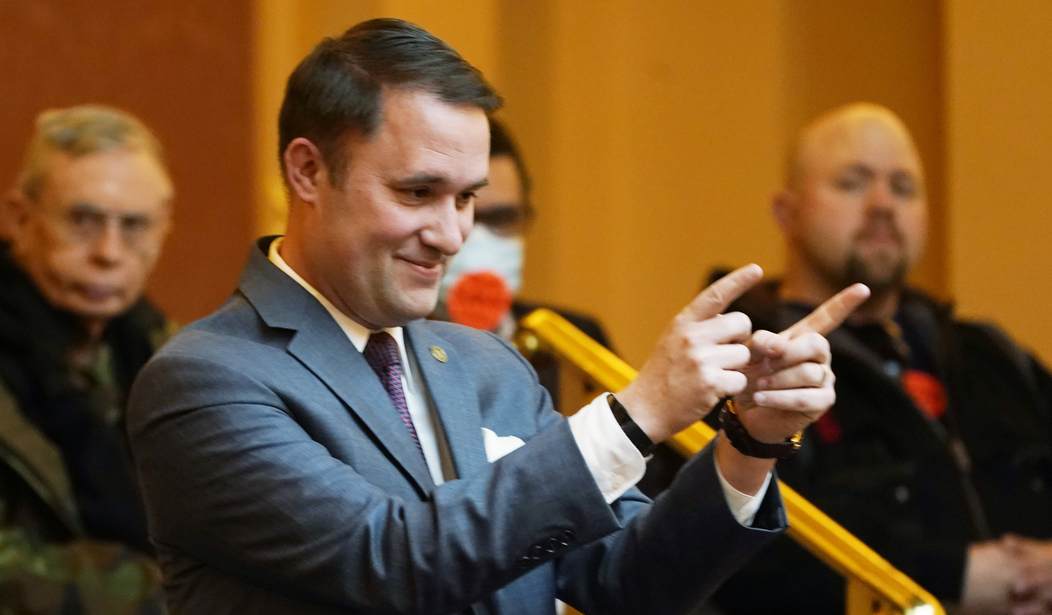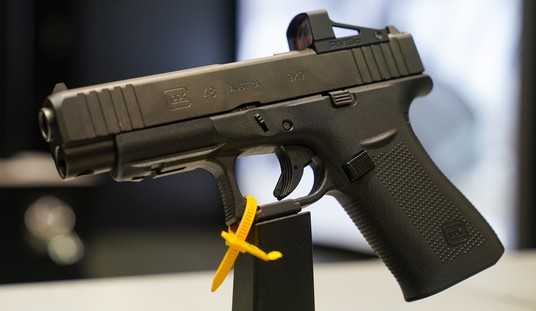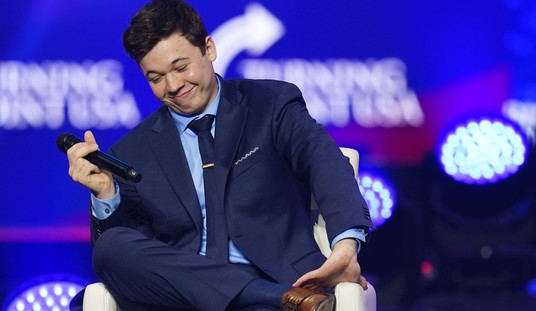If you’re a regular reader here at Bearing Arms or tune in to Cam & Co, you’ve probably heard me talk about Operation Ceasefire before. The program, which was first implemented in Boston back in the late 1990s, uses a carrot-and-stick approach to reducing crime among violent offenders; offering social services like job training and counseling for those who will take it, but sending their next criminal case to federal court and the promise of a stiff sentence if they refuse to take advantage of the opportunities given to them.
After several years of fighting for funding in the politically divided state legislature, Operation Ceasefire is finally up and running in Virginia, and I had the opportunity on Thursday afternoon to speak with Attorney General Jason Miyares about the early success seen to date.
Right now Operation Ceasefire is working in twelve cities across the state, and Miyares says nearly 100 indictments have already been handed down.
Miyares said the cases deal with possessions of glock switches, machine guns or the illegal use of firearms during the commission of violent crimes.
Operation Ceasefire focuses on prosecuting repeat offenders, implementing community policing models, investing in witness protection and investing in community prevention efforts, according to Miyares.
Sometimes federal agents are making the arrests for gun crimes, while other times Richmond Police makes the arrests and transfer the case to the US attorney office where they have cease fire attorneys embedded, according to Miyares.
Operation Ceasefire, when done correctly, can lead to a massive reduction in violent crime as well as a decline in overall arrests. Since the strategy focuses on repeat, violent offenders and those most at-risk of committing a violent crime, the targeted approach is far different than the tactics favored by gun control activists; passing new gun control laws that cast a wide net of criminality over the public at large. That approach not only leads to a lot of arrests for “crimes” like possessing a gun without a license, but ends up wasting law enforcement and prosecutorial resources on individuals who pose no threat to themselves or the community at large.
“The reality when you look at it from an 80,000-foot view, there are multiple studies that have shown roughly three to five percent of violent offenders are committing roughly fifty percent of the violent crime,” Miyares tells Bearing Arms. “So if you want to lower violent crime you go after that three to five percent.”
“They say the only thing you learn from history is that no one learns from history. And yet a lot of these social justice prosecutors and left-wing politicians in a lot of this cities adopt these policies that were all tried back in the 1970s; cashless bail, early release of violent offenders, not prosecuting anything with mandatory minimums. In the 1970s they tried all this and it led to a crime explosion. We learned some really tough lessons, and what you saw was between 1992 and 2018 crime dropped in this country.
I would note for your audience that during that same period violent crime is dropping, including gun violence, gun ownership was increasing at a drastic level. So you had a drastic increase in gun owners in America, but gun violence was dropping.
There’s a lot of reasons for that, but one of the main factors was going after these repeat, violent offenders. We got away from that starting around 2018.”
Miyares notes that the move away from focused deterrence was exasperated by COVID, which not only shut down schools across the country but resulted in court closures, early releases of inmates, and a push in some cities to avoid making arrests on some charges in order to keep jails from becoming incubators for the virus.
At the same time, says Miyares, many of the support systems keeping kids away from gangs were also shuttered, which he believes helps explain the rise in juvenile crime we’re seeing in many cities. One of the fundamental components of Operation Ceasefire is keeping youth from heading down the wrong path, and the Attorney General says those efforts are also underway throughout Operation Ceasefire’s targeted cities.
“Operation Ceasefire is both putting a lot of resources into re-opening Boys and Girls Clubs and others to really target these youth from at-risk situations. So we’re basically communicating both ‘hey, we’re investing in you, we’re going to give you opportunities, we’re going to do mentorship programs, but if you cross that line and you’re now one of those repeat, violent offenders we’re gonna prosecute you. I think that is the way to lower gun violence. You don’t go after law-abiding, innocent gun owners. You go after those that are the lawbreakers, and that is something Gov. Youngkin and I talked a lot about. We announced our intent to launch Operation Ceasefire late last year, had to get through the General Assembly session with a budget, but we’re now finally fully ramped up with both our prosecutors and our group violence intervention coordinators.”
It took longer than I would have liked thanks to the intransigence of some Democratic lawmakers who voiced objections over the law enforcement component of Operation Ceasefire. Thankfully those objections were finally overcome last session, and while Miyares notes the soft-on-crime approach still favored by many in the General Assembly, he says there’s been a lot of bipartisan cooperation between Democratic mayors in cities like Petersburg and Roanoke and his office, which is very good to hear.
When gun control activists claim that Second Amendment supporters have no answers to violent crime other than “guns everywhere”, they’re simply lying. No, I don’t believe that we can ban or arrest our way to safety by criminalizing our fundamental right to keep and bear arms. If that were the case Washington, D.C. wouldn’t lead the nation in the number of mass shootings, given all of the gun control laws in place in our nation’s capitol. Instead, by focusing on those who are driving a disproportionate amount of violent crime in their communities we can make neighborhood safe for kids to play outside, employers to open up businesses, and responsible gun owners to protect themselves and those they love without fear of committing a felony for exercising their Second Amendment rights.
Be sure to check out the entire conversation with Virginia Attorney General Jason Miyares in the video window below, and if you like what you hear encourage your own local lawmakers to put Operation Ceasefire in place in your state. This is a program with a track record of success and should be supported by every lawmaker across the political spectrum… or at least those who care more about protecting public safety than obliterating our right to keep and bear arms.









Join the conversation as a VIP Member